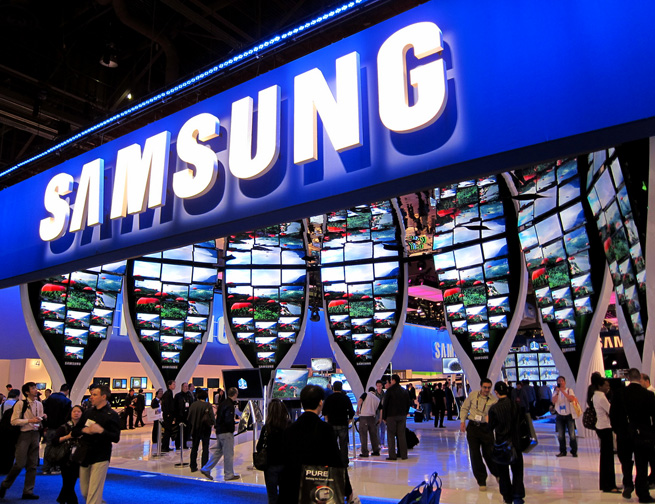
While Apple remains a constant threat for Google in mobile, the Android maker is also worried about its most successful hardware partner: Samsung.
[aditude-amp id="flyingcarpet" targeting='{"env":"staging","page_type":"article","post_id":628401,"post_type":"story","post_chan":"none","tags":null,"ai":false,"category":"none","all_categories":"business,mobile,","session":"D"}']Google executives now fear that Samsung could use its massive clout to demand a bigger share of mobile ad revenue from search, the Wall Street Journal reports. Google offers Android free to manufacturers, but it shares search ad revenues with carriers and handset partners.
So far, Samsung has received around 10 percent of search revenue, a person familiar with Google’s deals told the WSJ. But it’s not hard to imagine that the company, which now holds 40 percent of the Android smartphone market, could demand a bigger share. As Samsung’s phone sales increase — it accounted for 39.6 percent of all smartphones shipped in 2012 (almost all of them Android phones), while Apple accounted for 25.1 percent, according to IDC — a bigger revenue share for Samsung could cost Google quite a bit.
AI Weekly
The must-read newsletter for AI and Big Data industry written by Khari Johnson, Kyle Wiggers, and Seth Colaner.
Included with VentureBeat Insider and VentureBeat VIP memberships.
Samsung also has its own mobile operating system, Tizen, for low-end mobile devices. And it builds Windows Phone smartphones. That gives Samsung much more flexibility than Apple, and it’s yet another worry for Google. (Just imagine if Samsung replicated the Galaxy S line’s success on Windows Phone.)
Google’s relationship with Samsung will likely remain complicated for some time. As Samsung sells more devices, Google also pulls in more mobile search revenue. Samsung also has a complex relationship with Apple, since it makes the chips that power the iPhone and iPad, while also competing directly with Apple with its smartphones and tablets.
Andy Rubin, the head of Android at Google, told a group of the company’s executives at a retreat last year that the Motorola Mobility acquisition serves as an insurance policy against any one Android partner getting too big, a source told the WSJ. Google paid $12.5 billion for Motorola Mobility in 2011, but at the time it said Android would stay open and it wouldn’t play favorites with Motorola’s hardware.
But recent rumors point to Motorola developing a mysterious “X Phone,” which will likely be Google’s Android response to the iPhone. It’ll be different from Google’s Nexus line of smartphones and tablets since it will be built entirely by Google (via Motorola). Google works with hardware partners for its Nexus line, for example the Nexus 4 is built by LG and the Nexus 7 by Asus.
Google still hasn’t confirmed that the X Phone exists, but it’s becoming increasingly clear that the company needs its own phone not just to fight Apple, but also to keep Samsung from ruling the entire Android ecosystem.
Photo: Nan Palmero/Flickr
[aditude-amp id="medium1" targeting='{"env":"staging","page_type":"article","post_id":628401,"post_type":"story","post_chan":"none","tags":null,"ai":false,"category":"none","all_categories":"business,mobile,","session":"D"}']
VentureBeat's mission is to be a digital town square for technical decision-makers to gain knowledge about transformative enterprise technology and transact. Learn More
